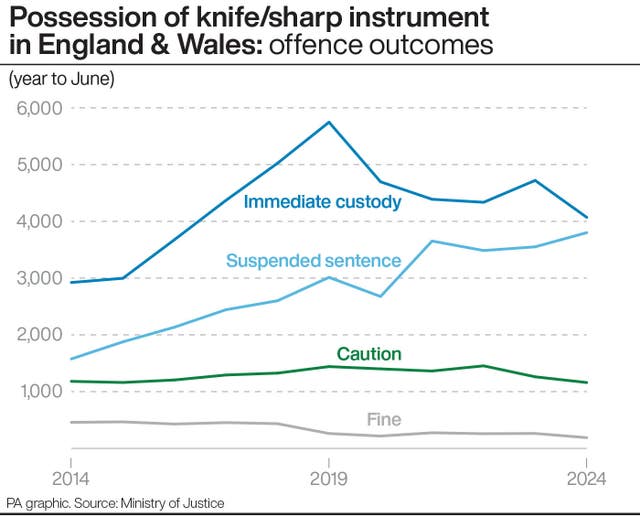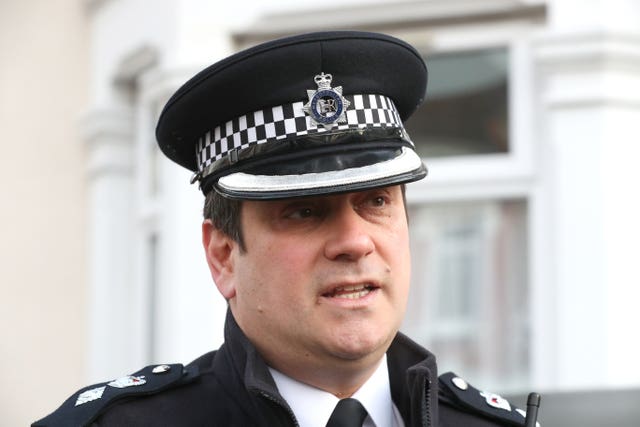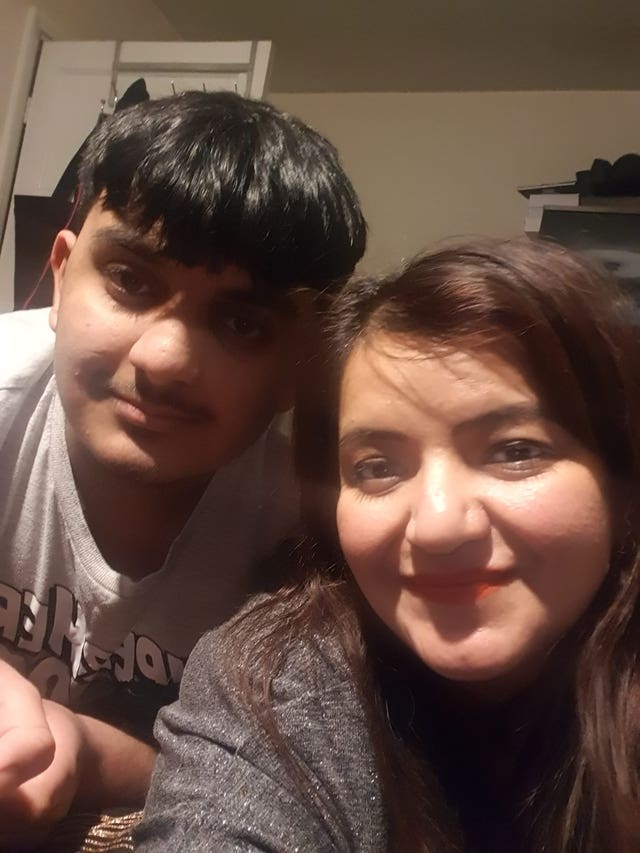Knife age checks ‘a huge vulnerability’ at sale and delivery, review finds
Measures to restrict knife sales have been published by the Home Office, amid concern at lax age checks and online sales by illegal dealers.

Age verification for buying knives online is “a huge vulnerability” at sale and delivery, a review has found, with thousands of weapons also sold illegally on social media.
Metropolitan Police Commander Stephen Clayman, who is the national lead for knife crime, said it is sometimes harder to buy paracetamol than it is to buy a knife.
The Home Office announced a raft of anti-knife crime plans on Wednesday, including making retailers report bulk or suspicious sales to police, and increasing the jail sentence for selling weapons to children, or illegal blades such as zombie knives, to two years.

This comes on top of proposals already announced to make knife buyers show photo ID at both sale and delivery.
Mr Clayman told the PA news agency: “The age verification is a huge vulnerability, both in terms of at point of sale and at delivery.
“We know that through the tragic stories we hear and have heard, but it continues that there are huge flaws that need to be addressed.”
He added: “Bizarrely, it is harder to buy paracetamol in some respects than it is to buy a knife. And that can’t be right.”
Axel Rudakubana, the teenager who murdered three children and injured another eight and two adults in Southport, bought the murder weapon online despite being underage by concealing his identity.
Other blades are bulk bought and resold illegally via social media on the so-called grey market.
Dealers post on social media sites including Instagram, TikTok and Snapchat, before communicating with potential buyers on encrypted platforms to avoid detection.

Mr Clayman led a Home Office-commissioned review of online knife sales that found 15 illegal dealers who had sold more than 2,000 knives in an 18-month period.
He said: “I could go to a legitimate dealer and buy 300 knives, and the dealer has no obligation to tell police that someone’s just bought that, or the fact I bought five knives each week for the last 10 weeks,” he said.
“We need to plug that and understand who is buying these knives.
“Because then what happens is, when they’re selling them on social media via their particular accounts, they are selling indiscriminately to children and young men, predominantly men, because there are no age verification safeguards.
“They don’t really care who they sell to.”
Last year Rayis Nibeel, a teenage drug dealer who murdered father-of-two Omar Khan, 38, in Luton, was found to have bought 65 knives online using an account set up in his mother’s name while he was under 18.
He bought dozens of weapons including kukris, bayonets and large hunting knives and sold them on for profit.
A similar picture emerged with one of the teenage killers of 16-year-old Ronan Kanda, who was murdered in a case of mistaken identity by two boys who were able to buy knives with no identity checks.

One of the killers had bought more than 20 knives online, including by using his mother’s ID.
The measures proposed on Wednesday will be known collectively as Ronan’s Law, after his mother Pooja and sister Nikita campaigned for legal changes.
Home Secretary Yvette Cooper told PA: “We need stronger action to tackle this dangerous knife crime that is killing children, and we’ve seen lethal weapons in the hands of children, and we cannot go on with families being devastated in this way.
“We need a crackdown on online knife sales, because at the moment there are fewer checks on knife sales to children than there are often on alcohol or cigarette sales to children. That is just wrong.”
The measures include plans to create an offence of possessing a weapon with intent for violence. Currently a similar offence exists for someone found in possession of a gun, but not a knife.
A new national police unit to tackle online knife sales will also be piloted.
The proposals do not include measures, highlighted by actor and anti-knife crime campaigner Idris Elba, for a ban on pointed ends on kitchen knives.
Mr Clayman said while the change could take several years to introduce, “the evidence suggests that actually rounded knives could prevent fatalities”.
Preliminary findings in a new study that tested 1,200 repeated stabbing motions on everyday clothing such as cotton t-shirts and denim jeans found that 10 different round-ended knives did not cut through the fabric at all, compared with two sharp-pointed knives that did.
De Montfort University’s forensic scientist Leisa Nichols-Drew, who is leading the research, told PA: “There are these safer alternative knives out there, and our ultimate goal is to reduce injuries, minimise harm and save lives.”
Ms Cooper said: “Not enough has been done to tackle the online market over recent years which is why we made it an urgent priority in our manifesto and the measures today will be underpinned by investment for a new dedicated police unit to go after those who are breaking the law and putting children’s and teenagers’ lives at risk.”
A consultation will be held later in the year on whether online retailers should have to register in order to be able to sell knives.





